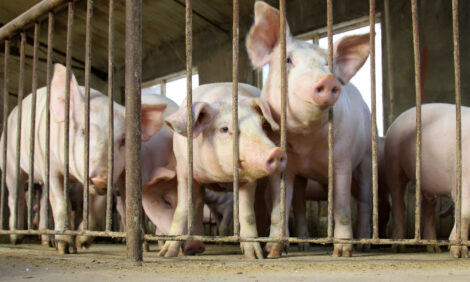



PED Virus Detected on Four More Hawaiian Pig Farms
HAWAII, US - The Animal Disease Control Branch of the Hawaii Department of Agriculture (HDOA) reports that it has detected the Porcine Epidemic Diarrhoea (PED) virus on four additional Waianae pig farms.Eight farms within a one-mile radius of the originally infected farm were tested, according to the state's Department of Agriculture (HDOA). Although evidence of the virus has been found on four farms, no swine appear to be sick.
On 20 November 2014, HDOA issued a quarantine order restricting the movement of pigs on Oahu after an outbreak of PED virus (PEDv) on a Waianae Valley farm. PEDv may cause significant sickness in swine and high mortality in piglets. The virus only affects pigs and does not pose a risk to humans or pets. It is not a food safety concern.
Since the initial outbreak, the affected farm appears to have recovered and remaining swine do not show signs of illness. State veterinarians surveyed eight swine farms within a one-mile radius of the affected farm and found genetic (RNA) evidence of the virus on four farms. Samples were taken by swabbing live swine and their environment. Four of the farms were negative for the virus. State veterinarians also tested imported market hogs that go directly to slaughter and those tests were also negative for the virus.
The quarantine order continues in effect restricting the movement of pigs on Oahu. No swine may be moved east past Nanakuli from Makaha, Waianae and Nanakuli Valley without a permit issued by the State Veterinarians. The order also restricts movement of swine from Oahu to neighbouring islands.
Scott Enright, chairperson of the Hawaii Board of Agriculture, said: “It’s important that swine farms adhere to the quarantine order and not move pigs from the west side of Oahu without permission from the State Veterinarian. While there is evidence that the virus we have is a less virulent strain, keeping our livestock disease-free is of utmost importance.”
PEDv is common in parts of Asia and Europe and was first confirmed in the US in May 2013. To date, 32 states have reported PEDv and it is estimated to have killed up to eight million young pigs. HDOA has consulted with PEDv experts on the Mainland and it appears that the strain of PEDv on Oahu is a less virulent strain of the disease.
Veterinarians are still trying to determine how the virus arrived on Oahu and will expand surveillance testing to determine the geographic boundaries of the outbreak.
In July 2014, HDOA increased swine import requirements to help prevent the entry of swine infected with PEDv into Hawaii. This included exclusion of swine from premises with PEDv and negative tests for PEDv prior to shipping.
Statewide there are about 230 pig farms – 70 of which are on Oahu. Most are small operations.






